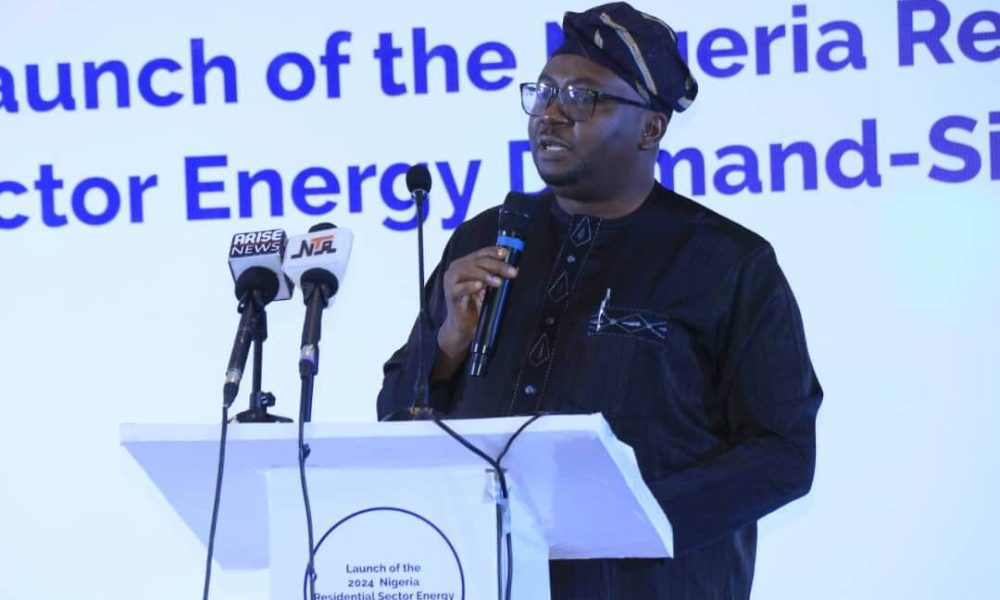The Chief Technical Adviser to Minister of Power, Adebayo Adelabu; Adedayo Olowoniyi, has said the country would continue to experience national grid collapse until all factors are put in place.
Henzodaily reports that Adelabu‘s aide added that the power sector was experiencing significant growth, particularly in the generation level.
In an interview with Arise News on Monday, Olowoniyi disclosed that distribution companies have consistently failed to take all power generated by generating companies.
According to him, under Adelabu, power generation increased from 4,200 to 5,500 gigawatts.
“I would say last year was pretty good from a generation point of view compared to what this administration meant. It was about 4,200, and I think it raised general or average generation to about 5.5 gigawatts, about 5,500 on a regular basis.
“In fact, there were multiple times last year that we could have surpassed the highest average, which was 5,800. But this was because also distribution companies would not take the energy. They would not supply energy to where they can also not recover.
“So I’m convinced that we will continue to move the generation capacity a lot higher because there is available capacity. As the liquidity continues to improve in the market, we can assure that generation capacity will also increase with the level of liquidity that increases because a lot of the generation companies today are owed significant amounts of money due to the lack of subsidy that hasn’t been paid.
“So as we continue to drive liquidity in the sector, we will see a significant increase in generation to match that,” he said.
Many Factors Cause National Grid Collapse
The Chief Technical Adviser to Adelabu explained that re-occurring national grid collapse was a product of many factors.
He identified vandalism, imbalance of the grid, and poor infrastructure as some of the causes of the national grid collapse.
Olowoniyi further assured that many interventions have been activated to address the grid collapse. Some of such, he said, included involving host communities of power infrastructures in the security of such infrastructures.
He added that there were plans to replace weak infrastructures with new ones. He further disclosed that the Office of the National Adviser was also working to address vandalism.
“It’s very difficult to give a specific timeline on grid collapse because the issues of grid collapse are multi-pronged. One, you have the aging assets that require significant investment. And on the other side, for an already fragile grid, you now have the impact of vandalization.
“It’s always a very, very difficult balance to pick to say when will grid collapse stop. But one thing I can assure that the federal government is making significant strides in investing in the national grid to ensure further reliability.
“And there’s a lot of work going with the national security advisor and security organizations to find different ways to curb vandalism. One of the things the Honorable Minister has looked at is, you know, how do you work with those communities? There are lots of communities, transmission network goes around Nigeria in different types of communities. And the best way to protect these assets will be through those communities.
“So the Minister has thought of different ways to engage those communities to see how they can also be part of protecting those assets. We believe that that would be the long-term, that would be the quickest way to actually arrest a lot of the level of vandalism that we’ve seen across the country.
“I don’t want to be the one who says there will be zero grid collapses. But it’s just the reality of the sector that we’re in. But what we are doing is making sure that we are building the grid for reliability.
“For example, the Siemens project you’ve mentioned is going to provide further reliability. We’re looking at a super grid that will also provide further reliability. But in the short term, there are basic things that need to be done. Focusing on operations and maintenance, focusing on key transmission lines, key nodes in key generation areas that have a big impact on the fragility of the grid.
“Fixing some vandalized lines that take energy to the North to ensure that the grid is balanced. Because part of the challenges we faced last year was a grid imbalance. Because some specific lines have been vandalized that take significant electricity to the North. When you have that, you have a total imbalance of the network.
“So things that happen on other lines that typically will not have caused a grid collapse potentially could cause a grid collapse. So some of the things that have to be done in the short term is bringing those lines back that have been vandalized, and then focusing on going back to the basics. Ensuring detailed operation and maintenance plans, and focusing on key nodes where large power is being transmitted. And focusing on key nodes is being transmitted,” he stated.
